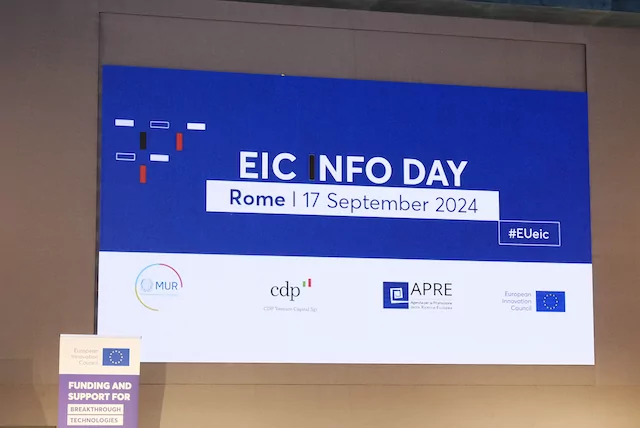EIC, which stands for European Innovation Council, has the mission to support researchers and innovators in the field of advanced technologies and, in particular, through the EIC Accelerator, a tool to support start-ups and SMEs in the development and scale-up of deeptech and disruptive innovations in the development stages between TRL 6 and TRL 9.
EIC was established as a funding programme under Horizon Europe and offers support in the form of grants and business acceleration services through the European Commission and equity through its VC investment arm, the EIC Fund, which supports start-ups through smart and patient capital with the EIC Accelerator. The European Commission is the Fund’s sole LP (limited partner), with a commitment of EUR 3.5 billion over seven years, and the EIB (European Investment Bank) is the Fund’s lead investor and advisor.
The EIC Fund is therefore aimed at start-ups and SMEs seeking to scale up with high-impact innovations, and which have ESG projects with the potential to create new markets or transform exiting ones, especially in the deeptech sector. Therefore, invests in early stage with deals from EUR 0.5 to 15 million in the form of equity or quasi-equity (e.g. convertible loans/SAFE). So far, it has invested in 249 companies worth EUR 952 million in 23 countries.
Agostino Scornajenchi, CEO of CDP Venture Capital, quoting Mario Draghi’s report (The Future of European Competitiveness), at the information event held in Rome in collaboration also with APRE and the Ministry of Universities and Research, emphasised how innovation and digitalisation are crucial for Europe to maintain and accelerate its productivity, which is essential to “counterbalance the demographic decline and loss of competitive power in a globalised and growing market”. He added that “the solution proposed in the Report includes creating mechanisms to make the transition from inventor to investor easier and more attractive by strengthening the links between universities, the research centre and the private sector. As CDP Venture Capital, which is the most important venture capital operator in the country, we fully support this vision’.
Here, according to Scornajenchi, CDP VC’s collaboration with EIC can help build a broader and more connected ecosystem, precisely because, he concludes, ‘many good things have happened here in Rome, in Italy, in the past. Now is the time to start again and make things happen in Italy in the future as well’.
Elena Giglio, institutional relations manager of D-Orbit, the Italian spacetech scaleup also invested in by CDP VC, recalled how this instrument had helped and supported them at a specific time for the company, when it found itself with a reduced staff and in need of more know-how. Especially in the difficulty of finding themselves with ‘different investment rules, on the one hand those of the Agency and on the other those of the European Commission’. And, again quoting the Draghi report, in terms of autonomy and resilience, Giglio clarified how ‘the business model was clear in the case of orbit: we signed up to the proposal in line with what the priorities were in the space sector’.
The European Innovation Council is therefore a key instrument for Italian and European start-ups in general, providing financial and strategic support for the development and growth of innovative companies.
Italian start-ups, traditionally characterised by an innovative fabric but sometimes limited in their access to private funding and infrastructure, can therefore benefit greatly from the EIC thanks to partnerships with entities such as CDP Venture Capital. In particular, they can access seed capital and growth funds, with fewer constraints than traditional channels, and rely on European networking, which opens up opportunities for international collaboration, and thus visibility and credibility, useful for attracting further private investment or strategic partnerships.
ALL RIGHTS RESERVED ©
